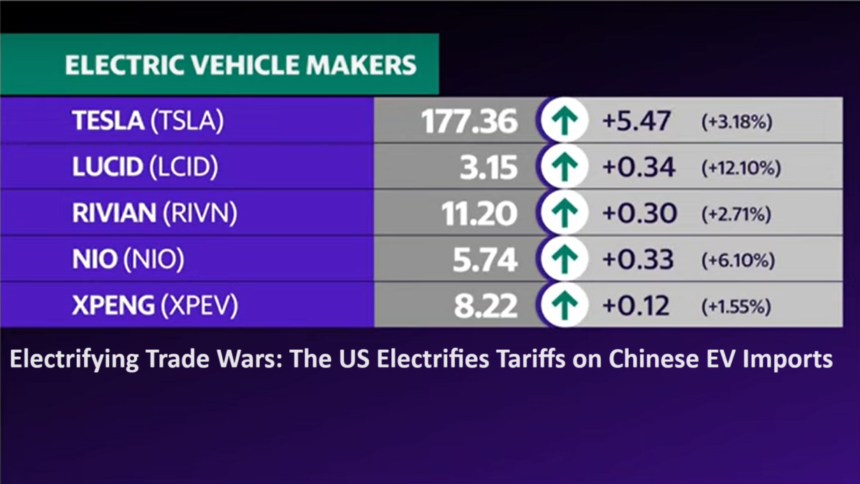In an unprecedented move that has jolted the electric vehicle (EV) market, the United States has introduced a hefty tariff on EV imports from China. This decision has sparked a complex debate and raised questions about the future of international trade in the automotive sector.
Decoding the Tariff Decision: A Strategic Economic Defense
The US’s bold step to impose a 100% tariff on Chinese EVs is a strategic economic defense to nurture its own EV industry. This protective measure is part of a larger economic policy designed to bolster American manufacturing prowess, supported by significant government investments as seen in the Chips and Inflation Reduction Acts.
The underlying concern for the US is the potential risk posed by China’s massive EV production capabilities. With an annual output of approximately 30 million EVs and domestic sales figures hovering around 22 to 23 million, the surplus poses a threat of market saturation in the US. The Alliance for American Manufacturing has expressed concerns that such an influx could be detrimental to the survival of American EV makers.
Analyzing the Impact: A Preemptive Measure for Market Stability
The seemingly abrupt tariffs are a preemptive measure to prevent the US market from being overwhelmed by lower-priced Chinese EVs. This move is intended to preserve market stability and ensure fair competition for US manufacturers.
The ripple effects of this tariff may lead to strategic shifts in Chinese manufacturing, potentially relocating production to third countries like Mexico to sidestep the tariffs. This could result in a significant reshuffling of the global EV manufacturing map.
The Political Chessboard: Economic Moves with Electoral Implications
The timing of the tariff imposition is different. With the US presidential elections approaching, the current administration is sending a clear message of its tough stance on China and its commitment to American job security. These tariffs are a political statement as much as they are an economic policy, signaling a robust defense against any practices that could undermine US industries.
The US’s tariff policy on Chinese EVs is a calculated move with layered motivations, encompassing economic security, industry protection, and political strategy. It represents a firm commitment to the health and competitiveness of US industries and the workforce they support. As the EV market continues to evolve, the long-term effects of this policy will be a subject of keen observation across the globe.





